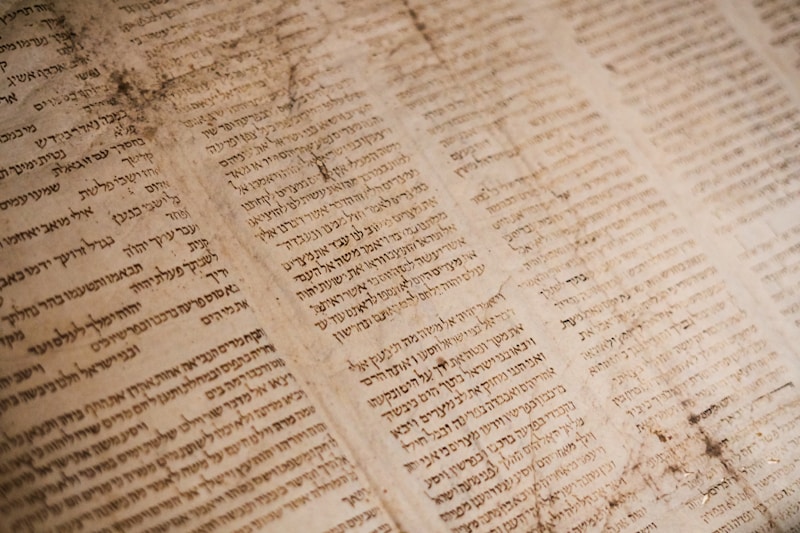The Jewish Canon
Asher Chee |
The Jewish Canon is the collection of documents that were inspired by God before the time of Jesus. These books were compiled as the Jewish Scriptures. Which books were included in the Jewish Canon?
The 24-book Canon
During the time of Jesus, the Jewish people recognized 24 books as scripture. The first 5 books were the books of the Law: Genesis, Exodus, Leviticus, Numbers, and Deuteronomy. The Babylonian Talmud records a tradition which lists the other 19 books:
Our Rabbis taught: The order of the Prophets is: Joshua, Judges, Samuel, Kings, Jeremiah, Ezekiel, Isaiah, and the Twelve. ... The order of the Writings is: Ruth, the Book of Psalms, Job, Proverbs, Ecclesiastes, Song of Songs, Lamentations, Daniel, the Scroll of Esther, Ezra, and the Chronicles.
— Babylonian Talmud, Baba Bathra 14b.
Later on in history, several of these books came to be counted as multiple books:
- The Book of Samuel was divided into the books of 1 Samuel and 2 Samuel;
- the Book of Kings was divided into the books of 1 Kings and 2 Kings;
- the Book of Chronicles was divided into the books of 1 Chronicles and 2 Chronicles;
- The Book of “the Twelve” were counted separately as the books of Hosea, Joel, Amos, Obadiah, Jonah, Micah, Nahum, Habakkuk, Zephaniah, Haggai, Zechariah, and Malachi; and
- the Book of Ezra was divided into the books of Ezra and Nehemiah.
When the books are counted in this manner, there would be 39 books. These are the same 39 books that are found in the Protestant “Old Testament” canon today.
The 22-book Canon
Other groups of Jews thought that there were 22 books in the Bible rather than 24. This was not because they removed any books from the Bible. Rather, the difference in number is due to the books being counted in a different manner:
- The books of Judges and Ruth were counted as one book, and
- the books of Jeremiah and Lamentations were counted as one book.
Josephus was a Jewish historian who lived during the first century CE. He wrote that the Jews accepted only 22 books as scripture:
We do not have a myriad of disharmonious and contradicting books, but only twenty-two books containing the record of all the past times. These books are rightly believed. ... So long an age as has already passed, and in all that time, no one has been so bold to add anything to those books, or to take away from them, or to change them. Rather, it is natural to all Jews that immediately from before birth, they would consider these dogmata of God, and remain in them, and if necessary, die joyfully for them.
— Against Apion 1.8.
Jerome was a Christian who lived during the fifth century CE. He mentioned both the 24-book canon and the 22-book Jewish canon:
And so there are twenty-two books of the old law: five books of Moses, eight books of the prophets, nine books of the holy writings. However, some people include Ruth and Cinoth [Lamentations] among the holy writings, and think that these books should be counted separately. Then we would have twenty-four books of the former law.
— Prologue to the Book of Kings.
Jerome believed that the Old Testament contained 22 books. Yet, he also acknowledged the alternate view that the Old Testament contained 24 books because of how the books were counted.

